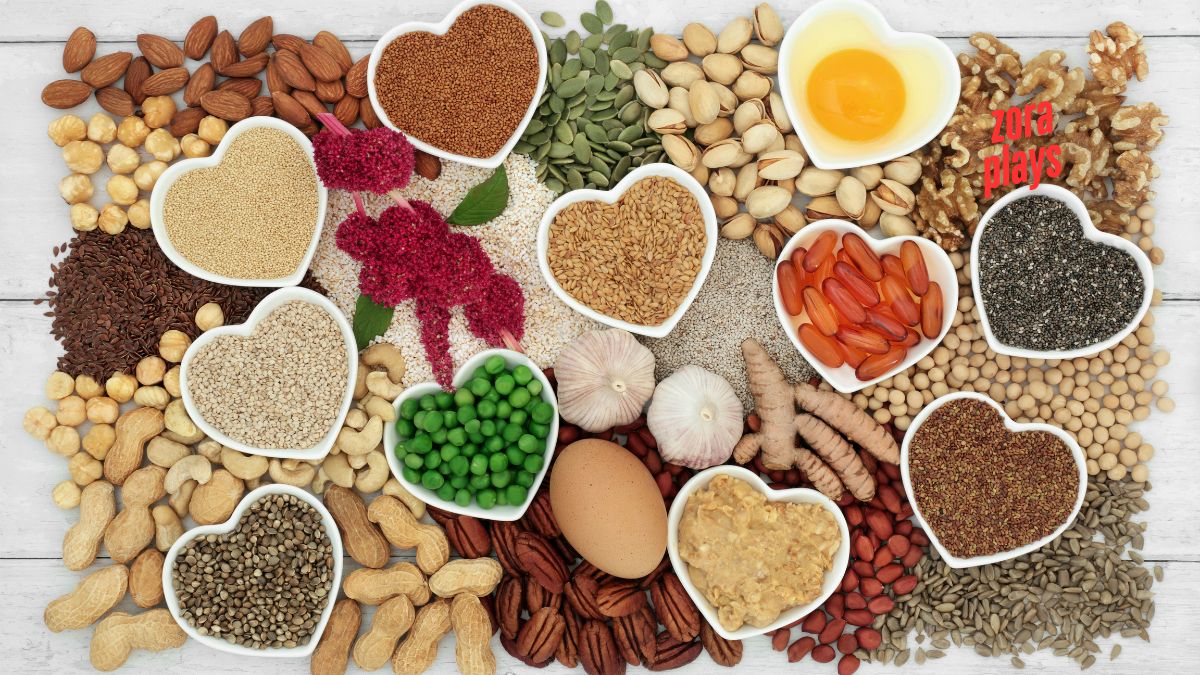Building muscle requires more than just lifting weights; your diet plays a crucial role in achieving optimal results. Protein is essential for muscle repair, growth, and overall recovery after workouts.
Incorporating high-protein foods into your daily meals can significantly improve your muscle-building journey.
This article highlights the top high-protein foods and provides seven must-try options to help you reach your fitness goals.
Why Protein is Essential for Muscle Building
Protein is made up of amino acids, which are the building blocks of muscle tissue. When you engage in strength training or intense workouts, small tears occur in your muscles.
Protein helps repair and rebuild these tissues, leading to muscle growth. Adequate protein intake also:
- Supports recovery after workouts
- Reduces muscle soreness
- Prevents muscle loss during weight loss
- Promotes satiety, helping with weight management
How Much Protein Do You Need?
Protein needs vary depending on factors like age, weight, activity level, and fitness goals. For muscle building:
- General recommendation: 1.2 to 2.2 grams of protein per kilogram of body weight
- Athletes and bodybuilders: 1.6 to 2.2 grams per kilogram
- Spread protein intake evenly throughout the day for best results.
Top High-Protein Foods for Muscle Building
Here are seven must-try high-protein foods that can help fuel your muscles and support growth.
1. Chicken Breast
Chicken breast is a staple for those aiming to build muscle due to its high protein content and low fat.
- Protein content: ~31 grams per 100 grams
- Benefits: Lean source of protein with minimal fat
- How to enjoy: Grill, bake, or stir-fry with vegetables and whole grains.
2. Eggs
Eggs are a complete protein source, containing all nine essential amino acids.
- Protein content: ~6 grams per large egg
- Benefits: Rich in vitamins, healthy fats, and high-quality protein
- How to enjoy: Boiled, scrambled, or as part of an omelet with veggies.
3. Greek Yogurt
Greek yogurt provides double the protein of regular yogurt and is rich in probiotics.
- Protein content: ~10 grams per 100 grams
- Benefits: High in protein, calcium, and gut-friendly bacteria
- How to enjoy: Mix with fruits, nuts, or use as a base for smoothies.
4. Lean Beef
Lean cuts of beef offer high-quality protein, iron, and creatine, essential for strength and endurance.
- Protein content: ~26 grams per 100 grams
- Benefits: Provides essential nutrients like zinc and B vitamins
- How to enjoy: Grill steaks, add to salads, or make lean beef burgers.
5. Tofu and Tempeh
These plant-based options are excellent for vegetarians and vegans seeking muscle-building protein.
- Protein content: Tofu (~8 grams per 100 grams), Tempeh (~19 grams per 100 grams)
- Benefits: Rich in iron, calcium, and healthy fats
- How to enjoy: Stir-fry, grill, or use in curries and salads.
6. Lentils
Lentils are a great plant-based protein option, also rich in fiber and essential minerals.
- Protein content: ~9 grams per 100 grams (cooked)
- Benefits: Supports muscle repair and improves digestive health
- How to enjoy: Add to soups, stews, or use as a base for veggie burgers.
7. Salmon
Salmon is not only high in protein but also loaded with omega-3 fatty acids that reduce inflammation and aid recovery.
- Protein content: ~25 grams per 100 grams
- Benefits: Promotes muscle growth and cardiovascular health
- How to enjoy: Grill, bake, or add to salads and grain bowls.
Additional High-Protein Foods to Include
While the above options are standout choices, other high-protein foods include:
- Cottage cheese
- Quinoa (complete plant-based protein)
- Tuna
- Chickpeas
- Protein shakes and powders (for quick intake post-workout)
Tips for Maximizing Protein Intake
- Plan meals: Ensure every meal contains a source of protein.
- Use protein-rich snacks: Include Greek yogurt, nuts, or protein bars between meals.
- Prioritize post-workout protein: Aim to consume protein within 30 minutes of exercising to enhance muscle recovery.
- Combine protein with carbs and fats: Balanced meals support better nutrient absorption and energy.
Sample Muscle-Building Meal Plan
| Meal | Food | Protein Content |
|---|---|---|
| Breakfast | Scrambled eggs with spinach | 20 grams |
| Snack | Greek yogurt with berries | 15 grams |
| Lunch | Grilled chicken breast with quinoa | 35 grams |
| Snack | Protein shake with almond butter | 25 grams |
| Dinner | Baked salmon with roasted veggies | 30 grams |
Final Thoughts
Building muscle requires consistent effort in the gym and the kitchen. Incorporating these top high-protein foods into your diet can significantly enhance muscle repair, growth, and overall recovery.
Whether you are a meat-eater, vegetarian, or vegan, there are plenty of options to meet your protein needs. Focus on variety, proper portion sizes, and nutrient-rich meals to fuel your fitness journey and achieve your muscle-building goals.

